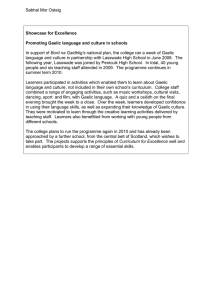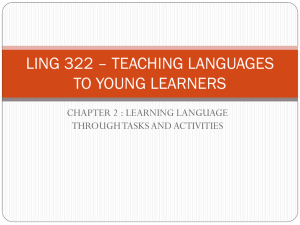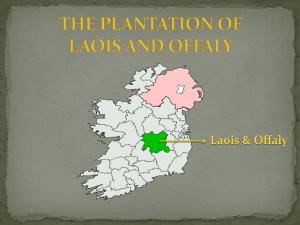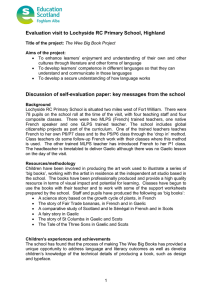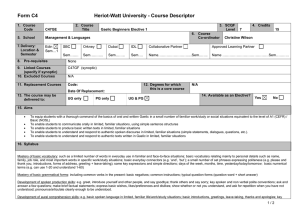Abstract
advertisement
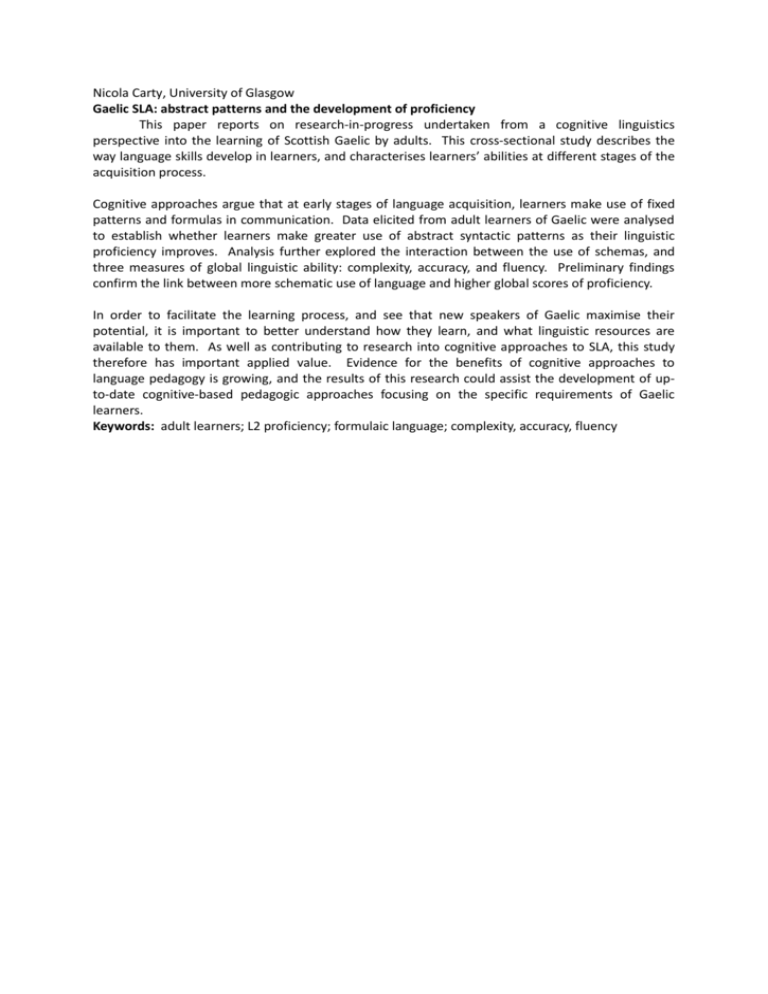
Nicola Carty, University of Glasgow Gaelic SLA: abstract patterns and the development of proficiency This paper reports on research-in-progress undertaken from a cognitive linguistics perspective into the learning of Scottish Gaelic by adults. This cross-sectional study describes the way language skills develop in learners, and characterises learners’ abilities at different stages of the acquisition process. Cognitive approaches argue that at early stages of language acquisition, learners make use of fixed patterns and formulas in communication. Data elicited from adult learners of Gaelic were analysed to establish whether learners make greater use of abstract syntactic patterns as their linguistic proficiency improves. Analysis further explored the interaction between the use of schemas, and three measures of global linguistic ability: complexity, accuracy, and fluency. Preliminary findings confirm the link between more schematic use of language and higher global scores of proficiency. In order to facilitate the learning process, and see that new speakers of Gaelic maximise their potential, it is important to better understand how they learn, and what linguistic resources are available to them. As well as contributing to research into cognitive approaches to SLA, this study therefore has important applied value. Evidence for the benefits of cognitive approaches to language pedagogy is growing, and the results of this research could assist the development of upto-date cognitive-based pedagogic approaches focusing on the specific requirements of Gaelic learners. Keywords: adult learners; L2 proficiency; formulaic language; complexity, accuracy, fluency
